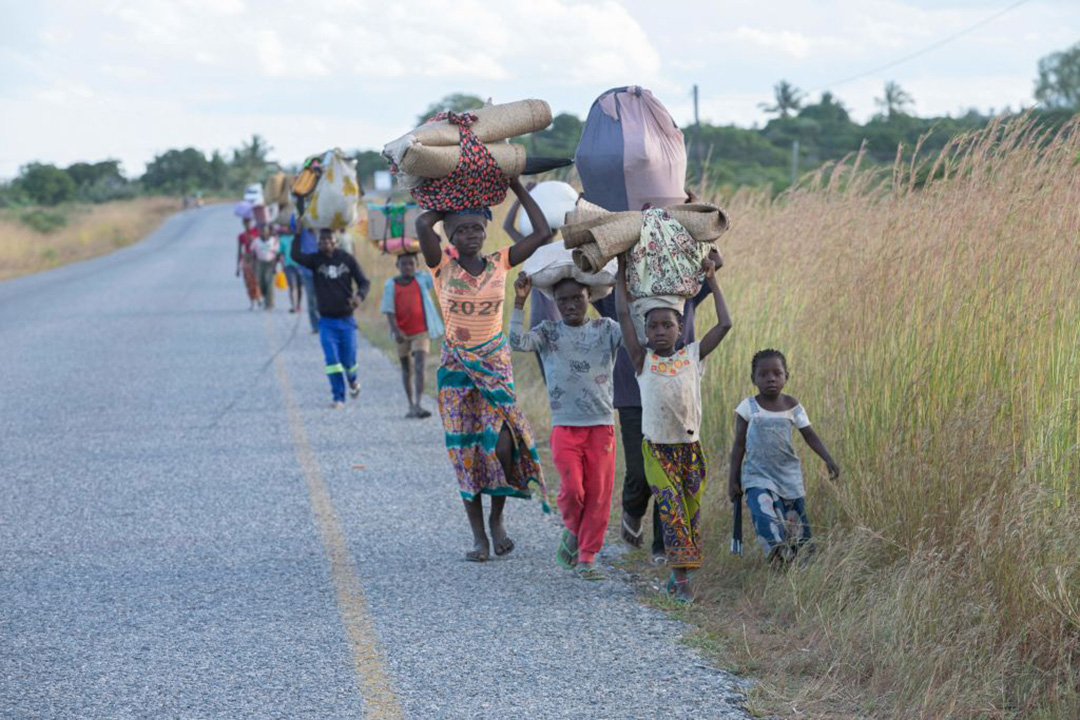Rebuilding Cabo Delgado a Daunting Task
ADF STAFF
Mozambique’s restive northeastern province is abuzz with action.
Despite recent losses, violent insurgents continue to attack villages and residents, while thousands of security forces fight to secure towns in order to welcome back displaced citizens and restore budding hopes of normalcy.
At the same time, the government, international organizations, donor countries and a regional bloc working to stabilize southern Africa are debating and forming plans to rebuild the province.
The number of moving parts, like the rebuilding challenge itself, is overwhelming.
“In a beehive you have 40,000 bees, and each bee knows exactly what they’re doing,” independent South Africa-based terrorism expert Jasmine Opperman told ADF. “In Cabo Delgado, we have a multitude of role players, but it’s not been coordinated. It’s not integrated.
“So, the bees are flying around, each one with their own little objective, but how does this relate back to a national strategy that is desperately needed in Cabo Delgado?”
The Southern African Development Community (SADC) Mission in Mozambique (SAMIM), which has thousands of troops deployed in the province, announced on June 24 that it has begun implementing the SADC Peace Building Support Programme.
The United States on June 14 pledged to “allocate almost $14 million per year for 10 years to help with reconstruction, professional training and justice capacity building” in Cabo Delgado.
The World Bank pledged $300 million for economic opportunities and health and education infrastructure. It distributed the first $100 million in January 2022.
Ministers approved the Mozambican government’s reconstruction plan for the province in September 2021. Its three pillars are humanitarian assistance, infrastructure recovery, and economic and financial activity. It will cost $300 million.
In a brief, SADC stated that its program is “aimed at enhancing social protection mechanisms, law and order, humanitarian assistance and capacity building initiatives.”
More than 4,000 people have been killed in Cabo Delgado, and more than 800,000 have been displaced by the violent uprising that began in 2017.
Opperman warns that the situation on the ground is not yet stable.
Cabo Ligado, an online conflict observatory that tracks the insurgency in Mozambique’s north, wrote in its June 20-26 report:
“The pattern of insurgent activity is increasingly characterized by hit-and-run raids on remote, vulnerable targets across multiple districts, most likely with the intention of stretching the security forces’ resources. Nevertheless, they are not seeking direct confrontation with the security forces.”
Renewed violence in June saw at least 53 killed in the districts of Ancuabe, Chiure, Mecufi, Meluco, Metuge and Nampula. More than 60,000 people, including nearly 33,000 children, fled their homes, according to charity organization Save the Children.
In reporting that terrorist cells have resurfaced in areas previously thought to be under control, Opperman urged caution for rebuilding efforts.
“The SADC program might have good intent, but the environment does not present itself as conducive for such interventions,” Opperman said. “First and foremost, we will have to freeze this insurgency. Secondly, a trust-building program with communities will depend on Maputo’s interventions, and then we can talk about SADC and their peace-building program.
“For now, it seems like a pie in the sky.”
Others, such as Professor Armindo Ngunga, chairman of the Integrated Development Agency for the North in Pemba, say the security situation is improving and believe the time is right for reconstruction to begin.
“I don’t think it would be wise for us to wait for all terrorists to be killed,” he said during an April 21 panel discussion hosted by the Institute for Security Studies. “Terrorism is something difficult to manage because it is not a conventional war which ends by signing an agreement.
“In this particular case, the terrorists are faceless in terms of their leadership. We don’t know who is behind them, who we could negotiate with.”
Another panelist, Mozambique expert Joseph Hanlon of the Open University in England, agreed that rebuilding should begin now.
“If you have hundreds of young people working on serious projects with serious training, they’re going to tell their friends,” he said. “That will get through to the people who are with the insurgents, who are only there for a job. All of the research suggest that most insurgents are there for the money or for a job, not for some religious reasons.
“If we start in the places we control, we could get these projects going. We need some security, yes, and not the kind of predatory security that is mostly coming from the Mozambique Army. That would tell young people of Cabo Delgado that there is an alternative, which none of them believe exists at the moment.
“So, we have to start reconstruction during the war.”


Comments are closed.